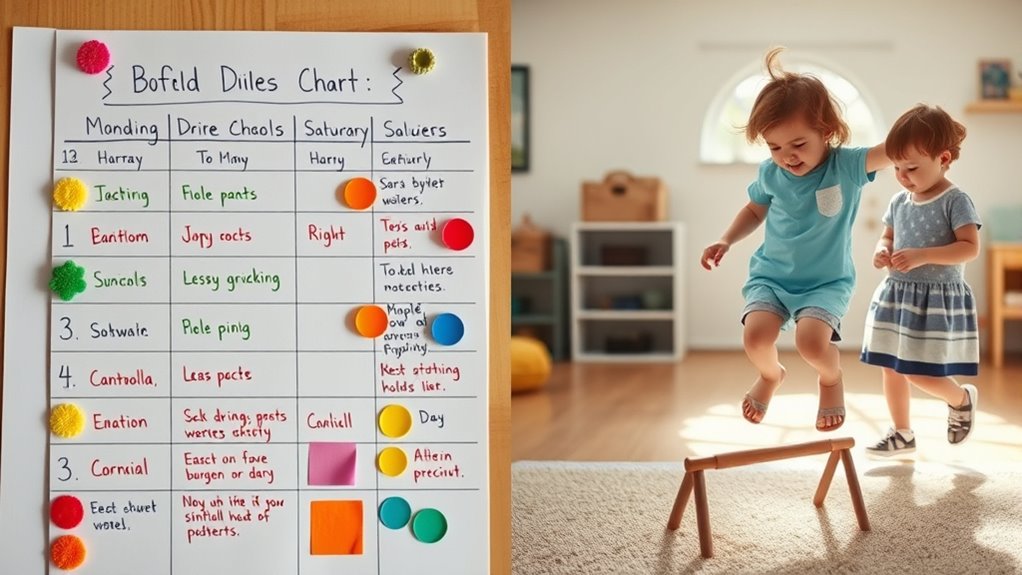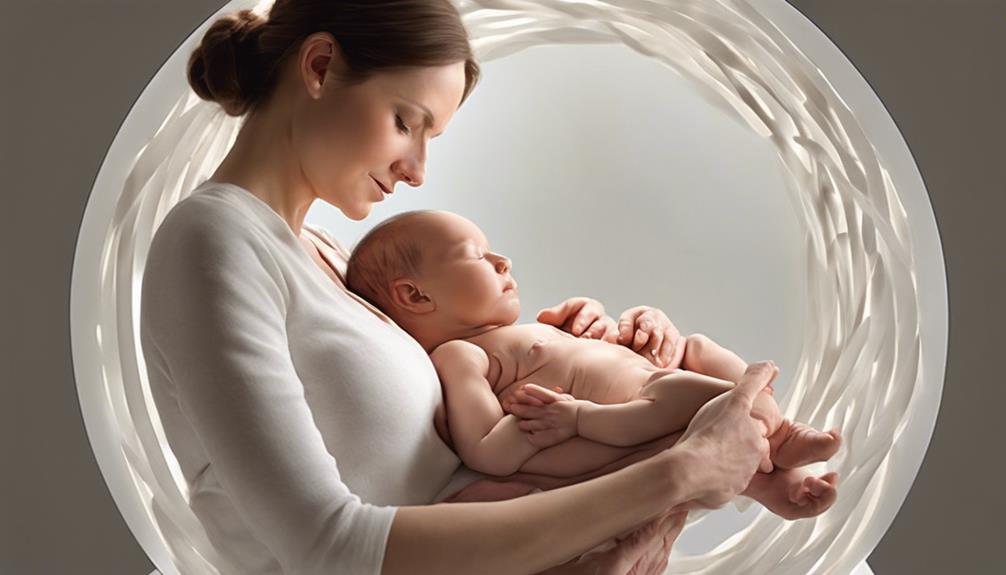When you track your child’s milestones, you focus on their individual progress and celebrate achievements, which encourages confidence and growth. Comparing kids, however, can lead to unnecessary stress and overlook their unique strengths. It’s healthier to recognize that development varies widely and to support your child’s personal journey without judgment. To learn how tracking fosters a positive environment while avoiding harmful comparisons, keep exploring the differences and benefits involved.
Key Takeaways
- Tracking milestones helps monitor a child’s individual growth, while comparing kids can lead to unnecessary stress and self-doubt.
- Focusing on milestones emphasizes celebrating personal progress without measuring against peers.
- Comparing children often distorts typical development ranges and overlooks unique strengths.
- Using milestone tracking with a balanced perspective supports patience and understanding of each child’s unique journey.
- Healthcare professionals advise monitoring development and avoiding comparisons to ensure healthy growth and early intervention if needed.

When it comes to your child’s development, it’s natural to want to keep track of their milestones. Watching your child grow and reach new skills can bring a sense of pride and reassurance. However, it’s easy to fall into the trap of development concerns fueled by social comparisons. Seeing other children walk, talk, or read earlier than your own can make you worry that something’s wrong, but every child develops at their own pace. Tracking milestones is helpful when done with the right perspective—it provides a way to celebrate progress and identify potential issues early. But comparing your child to others can lead to unnecessary stress and self-doubt. Remember, children are unique, and their developmental timelines vary widely.
Focusing on tracking milestones gives you a clearer picture of your child’s growth without the pressure of comparing them to peers. Instead of fixating on how your kid measures up, concentrate on their individual progress. If they’re hitting milestones like crawling or saying their first words within a typical range, that’s a good sign they’re developing normally. If they’re delayed, that’s when you might want to consult a healthcare professional, but it’s important to do so without panic. Keep in mind that many factors influence development, including temperament, environment, and even cultural practices. This reinforces that every child’s journey is different, and development concerns should be addressed with patience and understanding.
Social comparisons, especially when you’re browsing social media or chatting with other parents, can distort your view of what’s typical. It’s tempting to compare your child’s milestones to those of other kids, but often those comparisons aren’t fair or accurate. Some children learn to walk early because they’re physically active, while others may focus on language or social skills first. Comparing can make you overlook your child’s strengths or unique qualities. Instead, aim to track your child’s progress based on their individual abilities and interests. Celebrate small victories and recognize that setbacks are normal too. If concerns do arise, talking to your pediatrician is the best course of action, but always keep in mind that your child’s development is a complex, individualized process. Recognizing that developmental variation is normal can help ease anxiety and foster patience in your parenting journey.
Ultimately, tracking milestones with a balanced perspective helps you support your child’s growth without the stress of social comparisons. It’s about understanding what’s typical for your child and knowing when to seek guidance. Keep your focus on nurturing a positive environment where your child feels safe to explore, learn, and grow at their own pace. This approach fosters confidence and reduces undue worry, helping you enjoy the unique journey of your child’s development.
Frequently Asked Questions
How Can Parents Support a Child’s Individual Growth?
You can support your child’s individual growth by using positive reinforcement to celebrate their achievements, no matter how small. Encourage fostering independence by allowing them to make choices and learn from their experiences. Be patient and attentive to their unique interests and strengths, providing a safe environment for exploration. Avoid comparisons, and instead, focus on nurturing their confidence and curiosity, helping them develop at their own pace.
What Are Common Signs of Developmental Delays?
If you notice signs like your child struggling with speech, difficulty with motor skills, or limited social interaction, trust your instincts and seek early intervention. Regular developmental screening helps identify delays early, making intervention more effective. Keep an eye on their progress, and don’t hesitate to consult healthcare professionals if you’re concerned. Early detection and support can make a significant difference in your child’s growth and development.
How Do Cultural Differences Influence Milestone Expectations?
You might think milestone expectations are the same worldwide, but cultural differences greatly influence them. Cultural expectations shape what parents and caregivers focus on, leading to milestone variations across communities. For example, some cultures emphasize language development early, while others prioritize motor skills. Recognizing these differences helps you understand that children develop at their own pace, and milestone variations are normal, respecting each child’s unique growth journey.
When Should I Consult a Professional About My Child’s Development?
You should consult a professional assessment if you’re concerned about your child’s development, especially if milestones are critically delayed or if they show persistent difficulties. Early intervention is essential, so don’t wait if you notice anything unusual. Reach out to a specialist promptly; they can provide guidance and support tailored to your child’s needs. The sooner you seek help, the better the chances for your child’s growth and progress.
What Role Does Emotional Development Play Alongside Physical Milestones?
Emotional development is essential alongside physical milestones because it builds emotional resilience and social skills. As you watch your child grow, notice how they handle feelings and interact with others. Supporting their emotional growth helps them manage challenges better and develop strong relationships. Remember, emotional resilience and social skills are just as important as physical achievements, so nurture these areas through patience, open communication, and positive reinforcement.
Conclusion
Remember, every child’s journey is a unique tree growing at its own pace. Tracking milestones is like tending to your tree, nurturing its growth without rushing. Comparing, on the other hand, is like measuring other trees’ heights, which can stunt your own. Trust in your child’s natural rhythm, and celebrate each new leaf and branch they develop. In this garden of childhood, patience and love help your little tree flourish into something beautiful and one-of-a-kind.









